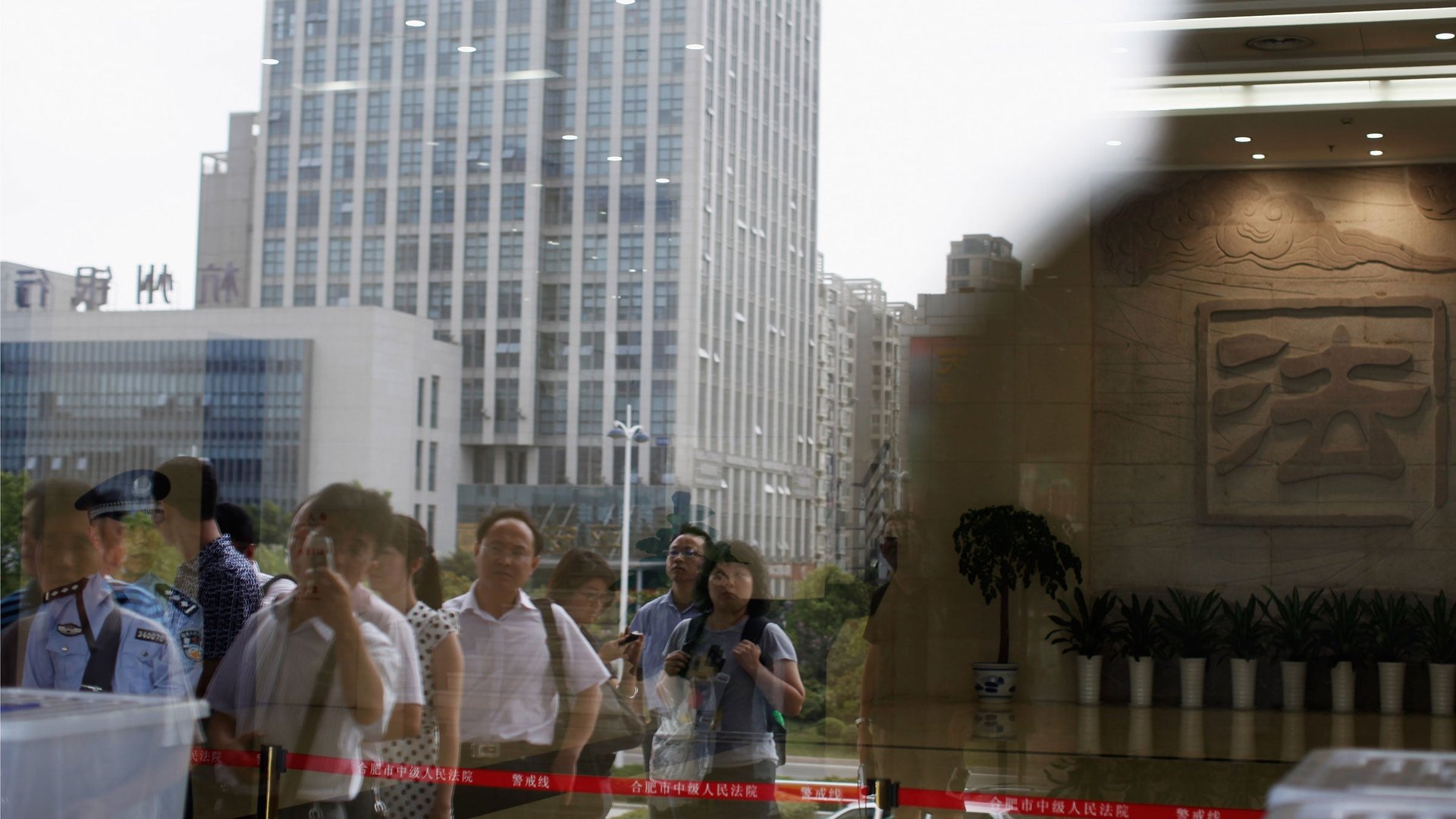The emerging tale of the British businessman killed in China: Who really was Neil Heywood?
Note: this item has been corrected.


Note: this item has been corrected.
The death of low-profile British businessman Neil Heywood in China has raised numerous theories about his life.
A Chinese court has ruled that he had been poisoned by the wife of disgraced former Chongqing chief Bo Xilai. Now The Wall Street Journal reports, citing British intelligence sources in part, that Heywood was an MI6 informant (paywall). In late March, the same newspaper said he was a contractor (paywall) for a British private security firm, Hakluyt.
It has also been widely reported that Heywood had ties to Bo Xilai’s family, having probably met them when he worked in the northern Chinese city of Dalian during a period when Bo was Dalian mayor.
But beyond that, accounts of his connections to the family diverge. It is sometimes rumored that Heywood, an old Harrovian, was so close to the Bo family he helped Bo’s son, Bo Guagua, into Harrow, the exclusive British boarding school. Others claim he did not, and that it may have been Britain’s Lord Powell, a former private secretary to Margaret Thatcher, who smoothed Bo Guagua’s entry into the prestigious, fee-paying school.
Willam Hague, the UK foreign secretary, has insisted Heywood was “not an employee of the British government in any capacity”. The Wall Street Journal says that this was “technically true”, but that he acted as an unpaid informant.
So what is known about Heywood thus far? Here are several strong possibilities.
He likely worked for Hakluyt, but not in any permanent or senior capacity. A hedge fund manager based in China who sometimes employs Hakluyt said Heywood had worked as a casual sub-contractor for the intelligence firm. ”I don’t exactly know, but I would be surprised if he was anything senior. I viewed him as an occasional information gatherer at most,” the hedge fund manager said.
Hakluyt was founded by former MI6 officers. The secretive Mayfair intelligence agency recruits from the corporate world too, however. A recent high-profile hire was former Rolls Royce chief executive Sir John Rose. The theory that Heywood was passing information to MI6, via Hakluyt, has been aired before.
Heywood probably helped the Bo family with overseas business. This included assisting Bo Xilai’s wife, Gu Kailai, with a bizarre deal to import hot air balloons from Britain to China. That, at least, was the version of events told by British businessman Giles Hall, who said he sold Gu the balloons. Gu Kailai’s family had numerous overseas business interests, Bloomberg reported.
He also assisted at least one British company with business China. That was Manganese Bronze, which makes London black cabs and confirmed Heywood had helped it evaluate the Chinese car market.
It is uncertain whether Gu Kailai actually poisoned him. Chinese forensic scientist Wang Xuemei has made the bold claim she does not believe the evidence Chinese prosecutors used to convict Gu Kailai about how she supposedly poisoned Heywood with cyanide makes sense. A few days ago, Wang spoke out again, this time claiming Heywood had been killed to stop him revealing a big secret.
The Chinese authorities were inconsistent in their accounts of his death. When Heywood was found dead in Chongqing last November, the police said his death was caused by alcohol poisoning. Then it began to emerge that the Chinese authorities believed Heywood was poisoned, and viewed Gu Kailai as a suspect.
His death was treated as a high-level diplomatic issue in the UK and the US. In March, the British government reportedly pressed Beijing to reopen the case of Heywood’s death. That was after Wang Lijun, who was Chongqing’s police chief during Bo Xilai’s reign, fled the city for a nearby US Consulate, allegedly offering up information about Heywood’s death. The US Consulate did not grant him asylum and passed his information on Heywood to British diplomats.
Correction (Nov. 6): An earlier version of this article said that Neil Heywood was reportedly “an MI6 spy”. This was changed to “informant” and the denial by William Hague was also laid out in more detail.